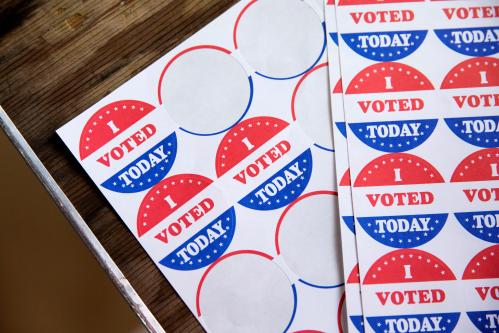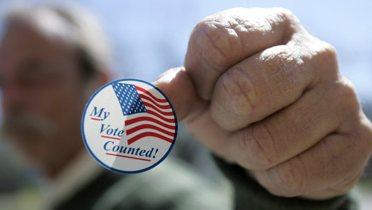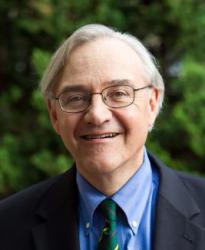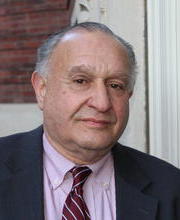We hosted a virtual event this month about a new report which calls for universal voting in the United States. You can watch the hour-long video here and read the report here. We had so many excellent questions, some of which we were able to answer during the event, but we didn’t have time to get to every single question. So here are responses to some of the questions we didn’t have a chance to answer:
Roughly 100,000,000 Americans did not vote in 2016 because they did not want to. These are the people who concern me. I don’t see anyone doing anything about it and it’s been 100,000,000 forever.
Thanks for this question, which goes to some of the central points of the report. We believe our election laws make it far more difficult for people to register and vote than they should and we propose significant reforms. We obviously believe that making voting a duty will create useful pressure to make it as easy as possible for people to vote and fulfil their obligation.
Our election laws are especially difficult for young Americans to navigate, because young people are more mobile than older people. This is one reason why turnout is much lower among those under 45 and especially low for Americans under 30. The good news: turnout soared in 2018 and my hunch is that it will increase significantly in 2020. Nonetheless, we need the reforms we outline to get to full participation. –EJ Dionne, The Brookings Institution
Would requiring everyone—including low-information voters—lead to erratic or unpredictable election results?
We dedicate an entire section responding to this very question in the report. On principle, we object to the idea that “low-information” voters lack the understanding and knowledge required for voting. We believe that requiring everyone to vote—no matter their education level or political affiliation—will better represent popular will and lead to a far more representative system of governance.
Historically, we’ve seen how “literacy tests” and other false measures of “competence” have been used to disenfranchise voters of color and the less well-off. There’s reason to believe that compulsory voting and its complementary reforms would increase citizen knowledge. Resources that were previously used for turning out the electorate could instead be reallocated to educating and persuading voters. Candidates and political parties would need to appeal to all voters, not just “likely” voters. Moreover, we propose enriching our nation’s civic culture by expanding civic education in schools, encouraging engagement in the election process, and conducting widespread voter education campaigns.
On the question of erratic or unpredictable election results, it’s hard to believe that elections could be more erratic or unpredictable than they have been recently. In Australia, where mandatory participation has been the law for nearly a century, there is no evidence that their elections are more erratic or unpredictable than anyone else’s. We agree with the legendary political scientist V.O. Key Jr., who wrote in his book, The Responsible Electorate: “The perverse and unorthodox argument of this little book is that voters are not fools.” This view lies at the heart of our report. –Megan Bell and EJ Dionne, The Brookings Institution
If the proposal suggests that people would not be obligated to choose between the candidates and have the option of turning in a blank ballot, wouldn’t going to booths and waiting in line for long hours only not to vote for anyone redundant?
In a word, no. The allowance to abstain from voting but still comply with the mandate to show up (in-person, by mail, or through some online mechanism) is not redundant. We know this to be true from other countries that require comparable actions (participation without selection of any one candidate). In Australia, for example, citizens are required to “present themselves” to polling places for an election but aren’t required to select a candidate. With this 1924 mandate, the jump in turnout went from 60% in the 1920s to roughly 90% today. And the percentage of ballots spoiled or left blank is quite low: in 2010, it was reported to be six percent of cast ballots. This isn’t surprising, particularly since people are often inclined to do the default: In the same way one is likelier to enroll in a 401k at his or her workplace if required to opt-out rather than opt-in, voting can similarly become adopted and habitualized; it becomes likelier for the average citizen to do it when prompted by the government. Moreover, with the requirement in place, states and localities have to take on practices and reforms to ensure voting is actually easier: automatic registration, longer in-person early voting periods, establishment of more polling places, vote-by-mail options (plus elimination of hurdles such as voter ID). Essentially, all states would take on models comparable to those in Colorado, Oregon, and Washington, where wait times are minimal and turnout rates are higher. –Allegra Chapman, AAC Consulting
How has this worked in other countries?
The application of compulsory voting works differently across countries that currently mandate turnout, of which there are over 25. In some places, such as Australia, Singapore, and the Swiss canton of Schaffhausen, abstention is punishable with a monetary fine. This is generally not too onerous (for example, in Australia the penalty is AU$20). Elsewhere, nonvoting can lead to nonmonetary penalties. For example, in Brazil and Peru, abstention can prevent access to public services, such as loans from public banks or obtaining a passport. A number of countries, including Greece, Paraguay, and Turkey, have a legal requirement to vote but it is wholly unenforced or there are no specified penalties for abstention. Cross-national research shows that turnout rates tend to be highest where abstention penalties are meaningful and enforcement is likely. –Shane Singh, University of Georgia
You mention that a “none of the above” option would be added to the ballot under this initiative. What happens if it wins? Even in one jurisdiction?
This is an interesting question, though a “None of the Above” (NOTA) option winning an election seems very unlikely. In the report, we draw on two experiences of the NOTA option, the first in Nevada and the second in India.
A “None of These Candidates” option has been available on all ballots in Nevada state and federal elections since 1976. Since then, the NOTA vote share in Nevada’s presidential elections has ranged from less than half of a percent to 2.56 percent in the 2016 election. The best national example of widespread use of NOTA is in India. In the first general election after the NOTA was added to the ballot, NOTA votes made up only 1.1 percent of the total vote share.
One of the reasons we included NOTA in the proposal is because there is evidence that it actually encourages turnout. A 2020 voter experiment on the effects of NOTA found that including a NOTA option “increases participation and reduces the vote shares of non-establishment candidates.” –Amber Herrle, The Brookings Institution
Wouldn’t universal civic duty voting require a constitutional amendment? (Like 13th, 15th, 19th) The Constitution leaves voting to the states — yes? Or would just legislation like the Voting Rights Act work to do it?
The U.S. Constitution gives states the initial authority to regulate congressional elections, while Congress has the power to override those rules. Article I, Section 4 says that “The Times, Places and Manner of holding Elections…shall be prescribed in each State by the Legislature thereof; but the Congress may at any time by Law make or alter such Regulations.” In addition, Article I, Section 2 gives states the authority to determine who can vote in congressional elections. States also have the power to regulate their own elections, so long as those rules do not violate a constitutional mandate.
So, a state could pass a law to adopt universal voting for elections that occur in the state, whether for president, Congress, or state elections.
Although Congress has the power to “make or alter” state rules regarding the “time, place, or manner” of an election, universal voting might implicate Article I, Section 2, which gives states the exclusive power to determine who can vote in federal elections. Thus, it is less clear whether Congress itself could mandate universal voting in federal elections.
That is one reason why our proposal focuses on states and even cities within states that have the power to determine the voting rules for local elections. Many voting changes begin at the local or statewide level and then spread to other places, ultimately culminating in a nationwide rule. That’s essentially what happened for the women’s suffrage movement and the 19th Amendment. We see universal voting as an idea that is best tried at the local or statewide level first, and states certainly have the constitutional power to implement this reform. –Joshua A. Douglas, author of “Vote for US: How to Take Back Our Elections and Change the Future of Voting”
How would this initiative be enforced?
We propose a modest (e.g., $20) fine for not voting, which would not be subject to increases, interest, and civil or criminal penalties. This fee would not be levied upon those with a valid excuse for not voting (e.g., sickness and disability, natural disasters, travel, and religious obligation or belief). It could also be waived through the completion of a small community service requirement. We also recommend that jurisdictions consider using incentives, such as discounted public fees, a refundable civic participation tax credit, or a lottery for which participation in the election is the entry as way to promote turnout. –Megan Bell and Amber Herrle, The Brookings Institution
How do you ensure fines don’t fall disproportionately on Black, Indigenous, and Latinx voters under a universal voting scheme? And how could universal voting negatively affect the DREAMERS and other immigrants who may also become targets due to their inability to participate in this initiative?
This is a great question and something that the working group considered seriously. There are legitimate fears that state and local officials might abuse the voting requirement to target certain communities. Our recommendations call for legislation carefully tailored to ensure access for all communities and protect against misuse or unintended negative consequences.
Immigrants’ rights activists also raised well-founded concerns that inadvertent voting by noncitizens could subject them to unfair penalties. We write in the report that civic duty legislation should include “provisions to ensure that non-citizens and people with felony convictions are protected from penalty if they are mistakenly and unknowingly registered or required to vote.” As with Automatic Voter Registration, legislation must be carefully crafted to protect non-citizens and others who may be ineligible to vote in a certain jurisdiction.
Moreover, with universal civic duty voting, election officials are tasked with making voting as easy as possible—resisting voter suppression and dismantling barriers to voting—which means fuller participation from all communities and therefore a more representative electorate. –Megan Bell and Amber Herrle, The Brookings Institution
Don’t we need to make it easier to register and to vote first?
Yes, absolutely. The proposal laid out in the report includes several complementary and collateral reforms that are essential to the success of universal voting. It would be impossible to have a system of universal voting without expanding opportunities for voter registration, increasing options for voting (including early voting and vote-by-mail), and strengthening election administration. We call for these reforms in the report on our section titled, “Paving the Way for Universal Voting.” –Amber Herrle, The Brookings Institution
Do you mean all elections? Primaries, state legislatures, county governments, municipal, school board, school budget, referendums? There can be three or four elections in the same year. Is there a danger of trivializing the vote?
This was an important question to address because the United States has far more elections than most other countries. We believe the process should cover major elections, including congressional, statewide, and state legislative elections, with some flexibility given to states and municipalities who adopt universal civic duty voting, in regard to what elections it would cover. We hope that consideration of universal civic duty voting might be a spur to consolidate the calendars of elections, and we recommend that primaries be excluded, because they are party nominee-selecting processes, and not for all voters. –Miles Rapoport, Ash Center for Democratic Governance and Innovation, Harvard Kennedy School
Is there any chance of making Election Day a Saturday? What about Election Day as a holiday?
Making Election Day a holiday is an attractive idea if we abstract it to a question of how to we make voting a visible and celebrated part of life in a democracy. There are some good reasons to do it, especially if it became a focus for broader civic engagement. Practically, with schools and businesses closed, finding polling places and election workers would be easier if Election Day were a holiday. The challenge, however, is that many people have to work, even on holidays. And those people are often the ones who face the most barriers to voting, so there is a chance that it could increase disparities in participation and increase marginalization. There is also the question of how an Election Day holiday would impact the growing number of people who vote by mail or during early voting periods. In many states, you can already vote on a Saturday (or Thursday or Sunday). Before taking such a big national step, we need to make sure that it would actually meet the goal of increasing turnout. –Whitney Quesenbery, Center for Civic Design
The Brookings Institution is committed to quality, independence, and impact.
We are supported by a diverse array of funders. In line with our values and policies, each Brookings publication represents the sole views of its author(s).









Commentary
Universal Voting: Your questions, our answers
August 6, 2020